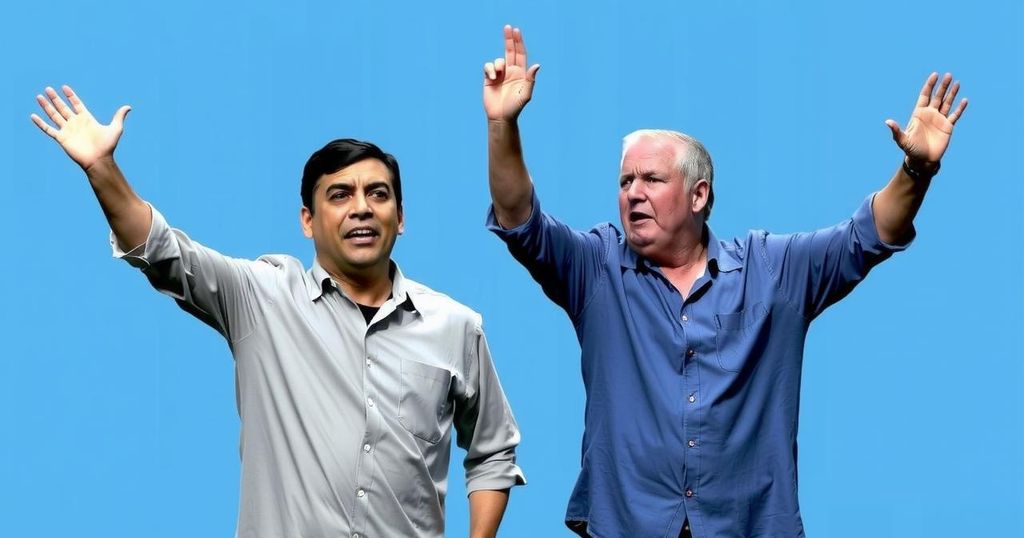Uruguay’s Presidential Runoff: A Tight Contest Between Conservatism and Progressivism
Uruguay’s presidential runoff features a close contest between conservative Álvaro Delgado and leftist Yamandú Orsi, following an inconclusive first round. Orsi’s Broad Front, noted for past reforms, leads against Delgado’s National Party. Rising crime and public apathy mark this election as both candidates propose differing strategies to regain voter confidence. The outcome reflects the importance of stability and negotiation in Uruguay’s democratic processes.
On Sunday, Uruguay entered the second round of presidential voting, as voters decided between Álvaro Delgado from the conservative governing party and Yamandú Orsi of the Broad Front coalition, both of whom are vying for leadership after neither secured a majority in the previous election. The Broad Front, which once presided over landmark social reforms such as abortion legalization and same-sex marriage, previously enjoyed a 15-year tenure before the recent center-right victory. Despite Delgado’s National Party garnering 27% of the initial round’s votes, Orsi’s coalition led with 44%, bolstered by support from allied conservative parties that could sway the balance in this runoff.
The election dynamic has transformed from unremarkable to fiercely competitive as both candidates have received mixed reviews for their campaign efforts. As concerns surrounding social inequities and crime persist in the nation of approximately 3.4 million people, voter indecision remains high, with many polls suggesting an almost equal split in support for Delgado and Orsi. This indecisiveness contrasts sharply with the fervor seen in many contemporary political contests elsewhere in the world.
The candidates are addressing the urgency of rising violent crime, a significant shift for a country historically recognized for its stability. Delgado promotes stringent crime policies and the establishment of a maximum-security prison, whereas Orsi’s strategy centers on community engagement and crime prevention. With high public endorsement for current President Luis Lacalle Pou, who cannot seek re-election, Delgado’s campaign reflects continuity of his predecessor’s policies, emphasizing economic growth and ongoing trade negotiations with China.
Yamandú Orsi, a former mayor and educator, is often compared to former President José “Pepe” Mujica due to his progressive stance. While Orsi champions a moderate leftist approach, he expresses intentions for gradual reforms rather than sweeping changes. Given Uruguay’s recent rejection of an increased pension proposal, the current election illustrates the population’s inclination toward maintaining economic stability while ensuring government accountability.
The increased competitiveness of Uruguay’s election follows a significant political history in which the Broad Front, a coalition of leftist and center-left parties, dominated from 2004 until their defeat in 2019. This political backdrop frames current electoral strategies as both candidates seek to address ongoing social challenges, particularly rising crime and income inequality. Uruguay’s political landscape is characterized by a strong democratic framework that fosters negotiation and compromise, evidenced by the regular consultation of public preferences in referenda and plebiscites.
In summary, the presidential runoff in Uruguay has developed into a remarkably close contest, with Álvaro Delgado and Yamandú Orsi proposing differing approaches to tackle pressing national issues. This election highlights the population’s desire for stability amid challenges such as rising crime and economic concerns. With a strong democratic tradition, both candidates face the important task of navigating a deeply divided electorate while presenting credible solutions to Uruguay’s pressing issues.
Original Source: www.voanews.com




Post Comment